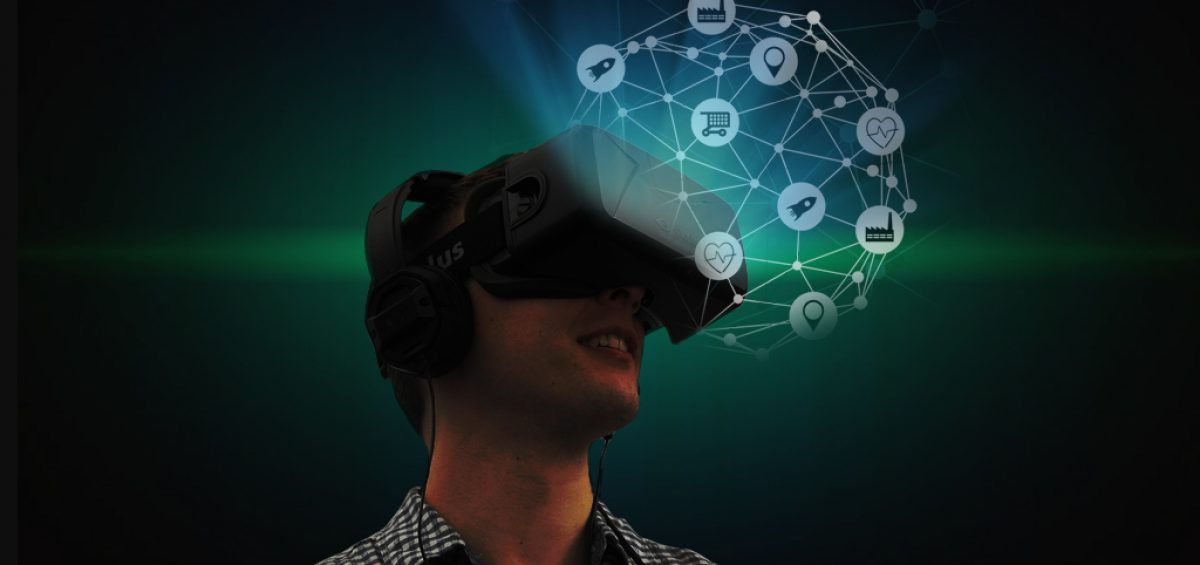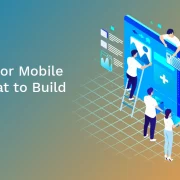
5 Industries That Will Drive Virtual Reality in Corporate Training
The future of immersive learning is here and now, and it’s virtual. Pegged as the next big L&D trend, virtual reality is predicted to revolutionize corporate training across businesses.
As the world gets faster with technological advancements and dynamic business environments, organizations are seeking effective strategies to skill/upskill their workforce and improve their on-the-job performances. On that account, VR in the workplace has become an instant hit.
Mobile applications and game developers have already started to focus on creating high-quality virtual reality content to capture the attention of their users. Going forward, virtual reality will be able to do things formerly unthinkable, especially in the realm of training. It is expected that many professional fields like healthcare, engineering, travel, real estate, education, military affairs, and more, will readily adopt VR for training purposes.
- Medical Training: It’s difficult to get accurate, on-the-job training in medicine in a risk-free environment. Trainees are quick to apply VR training to their daily practice. Virtual reality helps medics master clinical skills without touching a human body. It’s finally possible to immerse trainees safely in live emergencies with patients, nurses, and physicians, to virtually perform complex surgeries. The content flexibility in VR provides endless settings and virtual scenarios for training doctors, nurses, technicians, and staff on a broad spectrum of technology, skills, and techniques. It has proved a miracle for doctors to continually learn new surgery advancements in medicine using VR anytime, anywhere. All these benefits have made VR in medical training a super-specialized learning technology that is efficient, scalable, and risk-free for learners.
- Retail Training: The store is always open for training when employers use VR to skill their staff. Touted as the ultimate retail training tool, immersive in-store instruction for employee training is ideal for product awareness, store operations, and customer management. An irked customer, confused customer, senior citizen, child, disabled person, a massive weekend rush, Black Friday, etc., the interactive content can be customized to create various real-life work situations in the retail business. With VR, retail managers can throw as many situations at trainees as they want without risking their store’s reputation or business in general. Customized to the line of business, native language, local culture, and the user’s organizational role, VR is a breakthrough learning and training technology for the retail sector.
- Aerospace Training: Training in the aerospace industry is cost-intensive. And so, VR comes as a blessing for all those with a burning ambition to soar the skies, as it has made aerospace training easily accessible and affordable. Today there is a wide range of advanced and professional VR content available for flight training, such as 360 degrees VR headsets and full-motion VR headsets, making it one of the most mature sectors to adopt this training technology. In addition to flight training, VR is now used to train aerospace staff on aircraft maintenance, inspection, cabin and crew responsibilities, ground controllers, etc. The dramatic reduction in training cost-to-learner gives aspirants scope for repeated practice in complex work environments to perform better.
- Manufacturing Sector: It is one of the largest traditional employment-providing sectors worldwide. Each industry/factory demands diverse expertise from its employees on product engineering, plant operations, facility management, automation software, etc. In this scenario, say management hired a young college alumnus as a technician to operate a highly complex and dangerous piece of machinery. There are two options to learn how to run the machine and understand its dos and don’ts. One requires the newcomer actually to work the machine, and the other involves practicing with a simulation that can accurately recreate every aspect of the device itself without the potential for harm. Even if the trainee makes a mistake during his virtual training session, he doesn’t hurt himself, the machine doesn’t break, and there are no pink slips en route to the management office.
- Hospitality and Tourism: VR makes it possible for professionals in the travel and tourism industry to move at a comfortable pace when learning about various destinations. So, before agents travel, they can control their itineraries with a quick virtual recce, ready to guide travelers confidently and with ease. Virtual tours can include 360-degree headsets, key highlights, information, routes, accommodations, etc. during walkthroughs of popular tourist destinations. In a nutshell, virtual reality can help travel agents, tour operators, and hotel managers learn more about their travel destinations, soft skills training, and customer management before they get face-to-face with sightseers and vacationers.
More than a Technology Trick
After starting a storm in the gaming industry, VR is ready to change the Learning and Development (L&D) landscape in the corporate world. L&D now needs VR developers to conduct customer research, identify demand trends and create customized content/applications accordingly.
Conclusion
In conclusion, the future of corporate training is undoubtedly intertwined with the immersive and transformative capabilities of virtual reality (VR). As technology continues to advance, it is evident that certain industries are poised to harness the power of VR to revolutionize their training programs. Many industries like healthcare, manufacturing, aviation, retail, and defense sectors are at the forefront of this transformative shift. They are leveraging VR to enhance learning outcomes, improve safety measures, and drive operational efficiency.
As a leading provider of innovative digital solutions, Hurix Digital is committed to enabling organizations across these industries to embrace VR in their corporate training initiatives. Get in touch with us today!




